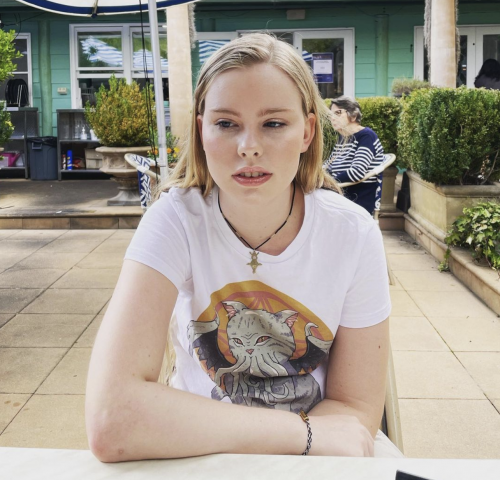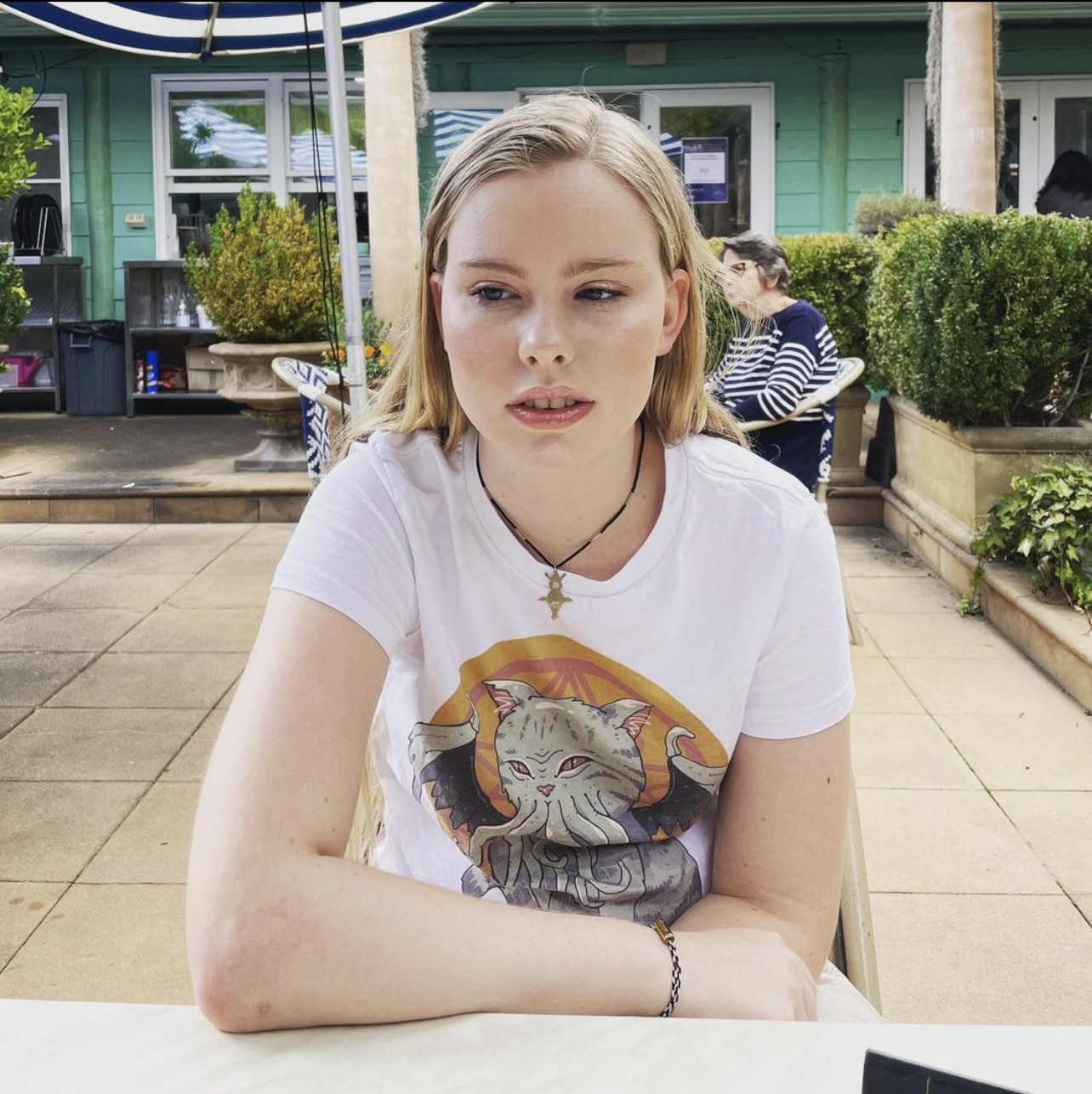
Thalia Greinke
The Australian National University
I am a 20-year-old woman who grew up in Canberra and, before graduating High School, had the privilege of attending the Canberra Maths Enrichment Program organised by The Australian National University Institute of Maths and the Australian Signals Directorate. Attending this brilliant program led to the study of “competition” maths and participation in The Tournament of the Towns. After I completed my A-Levels in Oxford I knew that I wanted to study Maths and Physics at ANU. Last year I completed my Bachelor of Mathematical Sciences and this year I will complete my Bachelor of Mathematical Sciences (Honours). I hope to be an academic and research and teach mathematical physics
Can you give me a quick rundown about the type of mathematics you are studying and its potential impacts for the broader community?
My passion is mathematical physics and differential geometry. In these areas we are trying to do things such as explain how to measure the mass of black holes by comparing a black hole’s event horizon to the event horizons of other black holes.
How did you get into mathematics? Was there someone or something that inspired you into this field?
My family has always loved maths and logic and I have found it to be fun from a young age. When I was a teenager Ralph Buchholz interviewed me to participate in the Canberra Maths Enrichment Program and I was fortunate to be able to study some esoteric areas of discrete and pure maths in that program with a variety of excellent lecturers. This inspired me to study maths at ANU.
Once in the Maths degree, the subjects that I enjoyed the most were String Theory taught by Professor Peter Bouwknegt; Differential Geometry which was taught by Professor Ben Andrews and Gauge Theory taught by Professor Bryan Wang. At the time I could have gone into either Physics Honours, Astrophysics Honours or Maths Honours and the fascinating material that the three taught in those subjects led me to understand that I preferred mathematical physics as an area and that differential geometry and mean curvature flows were the key to understanding the relativity that I feel compelled to study.
You received a Travel Grant to attend AMSI Summer School 2023. How important was this in terms of your ability to attend, fully participate in the program and meet others studying in similar fields?
The Travel Grant was a very important fund to assist me to even attend the program. I have a disability – Hypermobile Ehlers-Danlos Syndrome (hEDS) and Hyperadrenergic Dysautonomia (HyperPOTS). These mean that whenever I travel, I have to bring an assortment of things with me to ensure that I don’t dislocate joints too often and that I don’t physically overheat or pass out. The Travel Grant allowed me to afford to bring these necessary devices with me and to be able to participate in the program like a normal student. The ability to “pass” as a normal student is a privilege that I really appreciated. It meant that I was able to participate in activities face-to-face without other students thinking I was strange. Being able to participate face-to-face meant that I was able to meet other students and some of the AMSI staff and to enjoy a far richer program than I would have had if I had simply taken the subject online. It was a better experience to be able to chat with other students before and after lectures, to go on the walks and other activities arranged and even to eat breakfast with the other students and staff led to many interesting discussions.
What was the most valuable part of the program for you?
The most valuable part of the program for me was a combination of the brilliant courses that were taught – I really enjoyed the PDE course taught by Dr Mat Langford, and I wish I could also have studied the Random Quantum Matrix Theory with Mario Kieburg. The most valuable part of the program was that in addition to being able to attend these lectures, we students were able to discuss the content (or in fact any interesting content) with the lecturers throughout the downtime of the course. This access to the lecturers confirmed to me that I was on the right track with my honours topic and led me to consider making my thesis a comparison between two similar theories in relation to Penfold’s Conjecture.
In the long-term, what do you think are the benefits of having attended Summer School?
The benefit of having attended the Summer School is that we were a cohort. When we attend something like that, instead of just going our own ways and never seeing each other again, we keep in touch and even, with some of the students, are discussing our research regularly. Often maths is misunderstood as a solitary activity – but in fact, it is better when people can share ideas and show each other papers that we’ve found interesting. The collegiality of the face-to-face Summer School cohort is something that I do not think could be replicated online.
Summer School included a special Careers Day program which aims to help give students an idea of the kinds of career paths available to maths graduates in industry and private sector research areas. Were you previously aware of the types of industry opportunities available to mathematical science graduates?
I went into the Special Careers Day program with some very fixed ideas as to what I wanted to do when I complete a PhD in maths. It was good to see that if my dreams did not come to fruition that there are a number of ethical government and industry alternatives to being a university mathematical physics researcher and lecturer. The ASD and other organisations that provided the information were very clear and helpful in informing about their career opportunities.
What advice would you give to someone who is considering applying for Summer School in 2024? Should they apply and why?
The AMSI Summer School is one of the most fulfilling activities that you could participate in because you will get to meet a range of students across a spectrum of stages of their studies and careers. If you are in an esoteric area, you might not often get to meet so many people interested in the same things as you and it is very exciting to be able to discuss issues and areas with brilliant students. The lecturers are not only thoroughly prepared – their courses are brilliant and they will be available after the lectures and throughout the day often to discuss not just the courses, but a wide range of subjects. You get to see the staff as rounded people instead of as more distant academics.
Where do you want the mathematical sciences to take you? Where do you see yourself in five, ten years time?
I want to be at The Australian National University Institute of Mathematics in five- and ten-years’ time researching differential geometry and mathematical physics and lecturing in a range of subjects from those areas but also subjects such as discrete maths. It would be a great thing to be able to pass along the love of maths that I was given by Ralph the Triangle and Professors Bouwknegt; Andrews and Wang.

